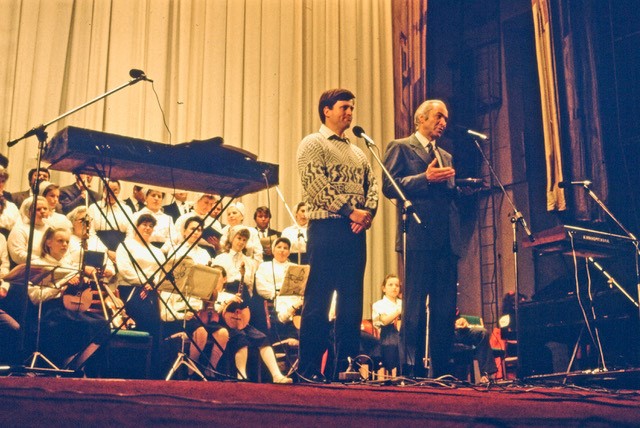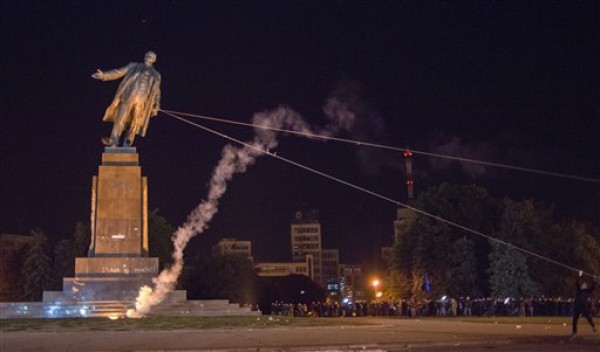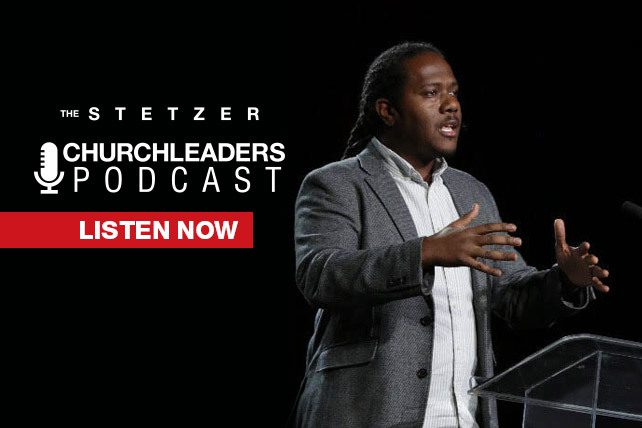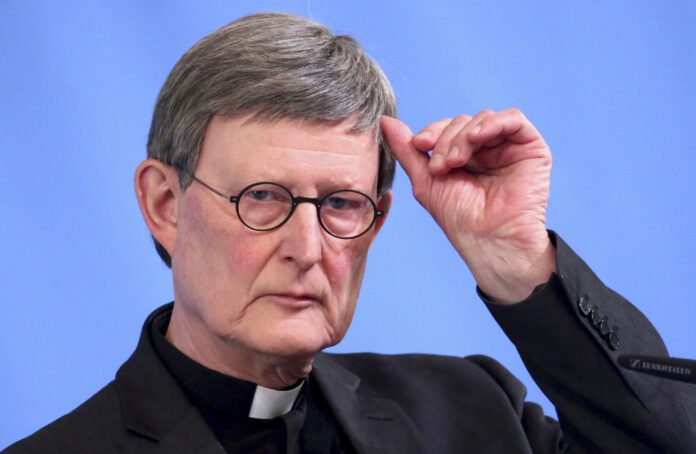When the righteous increase, the people rejoice, But when a wicked man rules, people groan. (Proverbs 29:2)
The sight of Russian tanks rolling into Ukraine will never be forgotten by many of us. Incredibly, Russian President Vladimir Putin, now a war criminal, asserted that Ukraine does not truly exist as a nation. The sense of entitlement and the implicit return to the mindset of the old USSR, dismantled 31 years ago, was and is stunning.
Here’s a video of a Ukrainian husband and father saying goodbye as his wife and daughter attempt to escape the country, which he is staying, presumably to fight and defend. As a father of daughters, this really gets to me.
I am struck by how close to home the situation in the Ukraine is to many of us who are what seems a world away. One of our board members is part of a second family to a woman from the Ukraine who has eight close family members there. Another board member, a public high school teacher, says, “I have an 18-year-old exchange student from Ukraine. So he is here living with a host family while his actual family is all back in Ukraine.” A third board member said, “Broken hearted for all involved in oppression. I can’t believe it has gone this far already! I wasn’t expecting it.” One staff member told me, “I read lots of fiction set in WW2. Hard to believe it’s 2022, and war is in Europe.”
On hearing the news of the invasion, my own mind immediately went back to 1991, when my longtime friend and pastor Steve Keels and I spent two weeks in Russia and Ukraine. It was the very year Ukraine would assert its independence, just months after we were there. In my first report on our trip just after returning in May 1991 (How Can We Help Churches in the Soviet Union?) I told the story of how we freely passed out Bibles in public schools and shared the gospel in Ukrainian classrooms for what we were told was the first time ever in that city, Kamanets-Podolsky (alternately spelled Kamianets-Podilskyi), since 1920 when Ukraine became part of the original USSR. (When we were there it was sometimes known as “the Ukraine,” or “the Soviet Ukraine.”)
The photo below is of me speaking, with Bill Kapitaniuk translating, at a rally in a Ukrainian philharmonic auditorium formerly open only to card-carrying members of the Communist party. The whole community was invited, and thousands attended. We shared the gospel, and many came forward to receive Christ, with hundreds asking for Bibles. People literally pressed against us, a sea of humanity reaching to grab hold of God’s Word. Forty-five minutes after the rally was over, people still crowded around us, asking us to sign their Bibles (as if we had written them!).

1991 was a unique and historic time in Ukraine. Change and the hope of freedom were in the air we were breathing. Just the previous year, Latvia and Estonia had declared their independence and other countries of the USSR were moving toward doing the same. It was becoming clear that USSR general secretary Gorbachev could not much longer control the territories beyond Russia.
Steve and I were in the Ukrainian city of Kamianets-Podilskyi on April 22, 1991. That was what was then one of the most prominent Soviet holidays, Lenin’s birthday. 121 years after Lenin was born, on the very day of, we were awoken by shouts and loud noises, and looked out our hotel window to the public square below, only to see hundreds of Ukrainian citizens. Some had ropes in hand, and all were attempting to tear down a huge statue of Lenin. It symbolized their rejection of the Russian control of what was once their country and in their hearts still was. We watched soldiers march out and point their weapons toward the protestors. For a few horrifying hours we thought we were going to witness a bloodbath. It seemed miraculous that it didn’t happen. This photo below shows the tearing down of a similar Lenin statue in a different Ukrainian city. Finally the statue came down and not a single shot was fired.

On August 24, 1991, only four months after we left, Ukraine officially declared itself an independent country. The parliament of Ukraine proclaimed that the nation would no longer follow the laws of USSR but only the laws of the Ukrainian SSR, thereby declaring Ukraine’s independence from the Soviet Union. That was made final when the USSR dissolved December 26, 1991, eight months after we left.
What hit me when I saw the invasion of the Ukraine is this: the vengeful bloodbath we thought we were about to see in 1991 is actually happening now, 31 years later.
Putin’s actions felt to me like the second coming of Stalin, who committed horrific crimes against the Ukrainian people, worst of all the enforced starvation that killed something like four million people. I mentioned in my letter just after returning home, that we shared the Gospel with a Ukrainian man on a train who a few hours later came to faith in Christ. What I didn’t mention in that letter was that Sergei, in the photo I took below, stunned us by saying that his mother was the only surviving member of her family—both her parents and all her siblings starved to death under Stalin’s horrific, even demonic, acts of murder. Both Steve and Bill appear taken aback by what Sergei was saying, which makes me think I took the photo when he was telling us the part of his story about Stalin starving the people of Ukraine and his mother being the only survivor in her family.






















